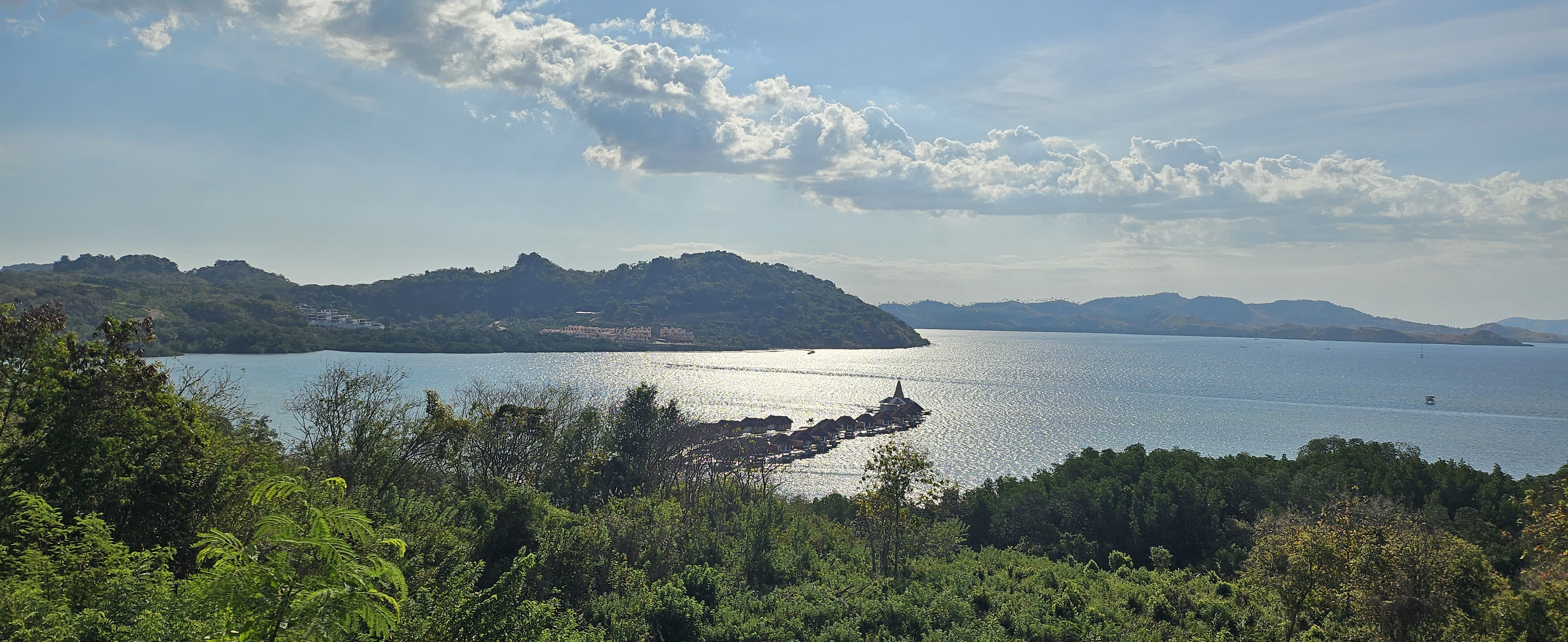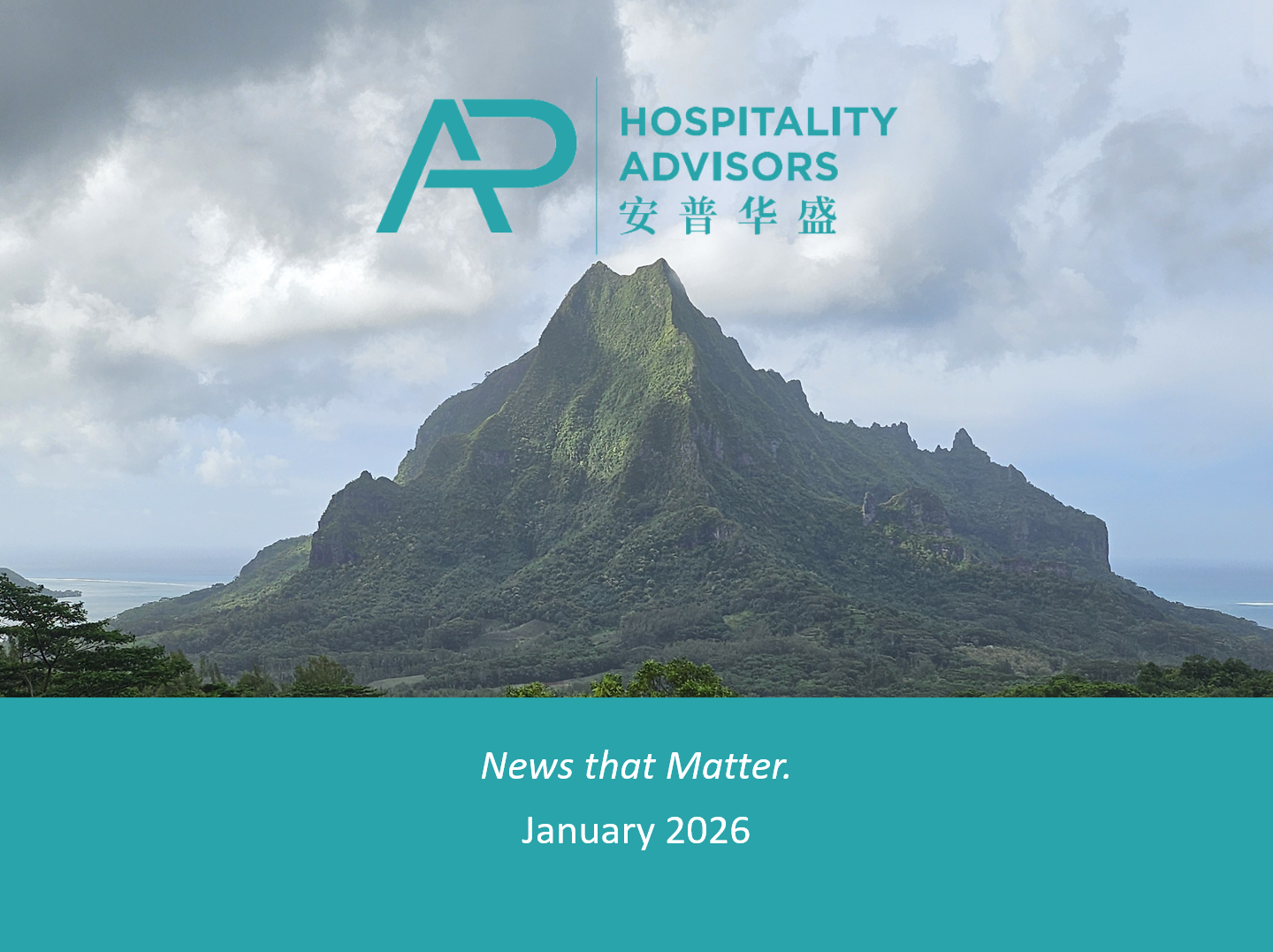AP Hospitality Bulletin Asia Pacific - July 2023

A Deal that Matters.
Goldman Sachs Asset Management took over two hotel brands, Casa Cook and Cook’s Club from Fosun Tourism Group’s FTC Hotels for an undisclosed sum. The two brands were part of the Thomas Cook Hotels & Resorts portfolio, which was acquired by Fosun when Thomas Cook collapsed in 2019. Positioned as lifestyle brands, Casa Cook and Cook’s Club feature a total of 16 properties across the Mediterranean and Red Sea. According to Goldman Sachs, the investment would help boost the expansion of these two brands across Europe. It is reported that previously signed projects under these two brands in China would be terminated at the same time.
Transactions that Matter.
1. Hospitality Portfolio, Southeast Asia
- Thailand-listed Strategic Hospitality REIT (“SH REIT") sold its entire three-hotel portfolio for USD 106 million to a BVI-incorporated company, EverLand Opportunities IX Limited, to avoid a loan default. The portfolio comprises the 317-key Pullman Jakarta Central, the 140-key ibis Saigon South and the 175-key Capri by Fraser in HCMC.
- The portfolio was on offer in early 2020 for $118 million and in October 2020 for $133 million. At that time, the Pullman Jakarta Central was valued at $94.3 million or $297,000 per key - the Ibis at $105,000 and the Capri $135,000 per key.
- The unique portfolio signals a recovery of the industry from the pandemic. However, the lower closing price and long time to exit the portfolio show that buyers remain price conscious and are seeking value.
2. 31-33 King’s Road, Hong Kong
- According to local news, Hong Kong real estate developer, Eric Chu, sold the 132-key hotel at 31-33 King’s Road for HKD 470 million (USD 61 million) or HKD 3.56 million (USD 463,000) per key. The property was previously operated as Butterfly on Victoria and sold for HKD 800 million (USD 103 million) by King State Group in 2017. After taking over the property in 2017, Mr Chu was reported to spend HKD 160 million on renovation work. However, the property remains closed for renovation now.
3. Sheraton Grand Mirage Resort, Australia
- Located on the beachfront, the 295-key Sheraton Grand Mirage Resort was acquired by the Karedis and Laundy families from Star Entertainment Group and Far East Consortium at AUD 192 million (USD 127 million) or AUD 651,000 (USD 430,000) per key. The buyers already own a number of hotel properties in Australia, including the Sofitel Noosa, Manly Pacific and Crowne Plaza in Terrigal, NSW.
- The property changed hands for AUD 140 million in January 2017. While the price was slightly lower than the asking price of around AUD 200 million, the sellers indicated it was a great deal in a release. Benefiting from its prime location, the sale represents an uplift for upscale hotels on the Gold Coast. The latest comparable transaction, 169-key Hilton Surfers Paradise, was sold in 2019 for AUD 355,000 per key.
4. Rihga Royal Hotel Kyoto, Japan
- In May, Mori Trust acquired the 489-key Rihga Royal Hotel Kyoto from Fortress Investment Group for an undisclosed sum. Built in 1969, the property has a number of banquet halls accommodating up to 1,000 people and seven F&B outlets, including one revolving restaurant on the top floor. The property underwent a large-scale refurbishment in 2015, and the new owner plans to continue the operations under the existing brand name.
- Mori has been actively involved in hospitality real estate in Kyoto in the past few years, including the Suiran, a Luxury Collection Hotel, Ryokan Karaku in Gion and the ongoing development of a luxury hotel in Gion.
5. The Ritz-Carlton Fukuoka, Japan
- It is reported that fund manager BentallGreenOak ("BGO") is set to acquire the 167-key Ritz-Carlton Fukuoka for an undisclosed sum, after the hotel officially opens last month. Located in the centre of Fukuoka, the property would remain under the management of Marriott after completion of the transaction. BGO would obtain the right to receive operating income from the hotel component of the "Fukuoka Daimyo Garden City" complex, where the property is located. The land owner, Fukuoka Government, is delighted to welcome the involvement of BGO in the development because of its experience in the real estate industry.

News that matter.
Indonesia
- Indonesia welcomed more than 3.1 million foreign visitors in the first four months of 2023, driven by visitors from Malaysia (16%), Singapore (12%) and Australia (12%). Chinese travellers are gradually returning to Indonesia and rank as the fifth largest feeder market in March and April. The Indonesian Ministry of Tourism and Creative Economy has adjusted the strategy in adaption to post-pandemic travel behaviour, including improving tourism quality, adapting technology and promoting sustainability. Visitors to Indonesia are mostly younger in age and traveling in small groups, compared to visitors before the pandemic.
- Bali is the most popular destination in the nation, receiving over 1.4 million foreign visitors from January to April in 2023. Denpasar International Airport is also the most used airport by foreign visitors, followed by Soekarno–Hatta International Airport in Jakarta and Kualanamu in Medan. Tourism in Bali is likely to take some time to recover fully, as international flights are still below 50% of pre-pandemic levels. Most importantly, Indonesia halted visa-free entry for all countries except ASEAN countries in June, aiming to alleviate public order disruptions and the potential transmission of diseases brought by tourism.
Singapore
- With strong demands from both leisure and business sectors, Singapore recorded over 5.1 million international visitors from January to May this year. Monthly visitors to Singapore exceeded 1 million for three consecutive months, and the latest figure in May shows a 75% recovery from 2019, leading the recovery in Asia Pacific. Indonesia topped the international arrivals to Singapore at 900,000 visitors in just five months, followed by Malaysia and Australia. Singapore also captured a great number of Chinese visitors at the same time, which accounted for 6% of the total arrivals.
- On top of diversifying the tourism experience, Singapore also efforts to establish its image of MICE hub in the region, including attracting international concerts to the nation. Singapore’s National Stadium and Sports Hub, which offers a maximum capacity of 55,000, has secured several large events, including hosting the concerts of British band Coldplay and American singer Taylor Swift in 2024.
Taiwan
- In the first four months of 2023, Taiwan welcomed over 1.6 million visitors, which were mainly from Korea, Japan and the U.S. As the recovery pace was beyond expectations, the authorities show confidence to hit the annual target of 6 million foreign visitors in 2023. Despite the little return of visitors from mainland China, short-haul travellers become the new target market for ongoing marketing campaigns, particularly Southeast Asia and North Asia. Aside from inbound travellers, Taiwan also plans to attract transit passengers with visa-free entry and complimentary city tours.
- Taiwanese outbound travel gradually resumed in July 2022 and reached over 2.9 million between January and April 2023. Japan (38%) was the most popular destination for Taiwanese travellers, followed by mainland China (9.5%), Korea (8.4%), Thailand (7.2%), and Vietnam (7.1%). However, it takes time for flights to resume due to the shortage of staff at secondary airports in Taiwan and overseas destinations.
Recovery Status in Asia Pacific
While the month-on-month growth shows a slight decline in May, tourism recovery among major destinations in Asia Pacific ranged between 36% to 75%. Led by Singapore (again), whereas Southeast Asia showed strong recovery with the gradual return of Chinese travellers.









